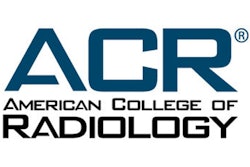Wednesday, November 29 | 11:50 a.m.-12:00 p.m. | SSK08-09 | Room E353B
Accurate identification of colorectal carcinomas can improve the surgical outcome of patients. Such was the case when Spanish researchers investigated the clinical usefulness of CT colonography (CTC) for spotting synchronous colorectal cancer.Optical colonoscopy is unable to produce images of the entire colon in about 6% to 26% of cases of colorectal carcinoma, Dr. María José Martinez-Sapiña Llanas told AuntMinnie.com. This is usually due to stenosing carcinoma.
To find the optimal way to visualize the colon under such conditions, Llanas and colleagues from University Hospital Complex of A Coruña examined the CTC scans of 165 patients with occlusive colorectal cancer. Radiologists using CTC accurately detected various types of tumors, including 17 synchronous carcinomas in 11 patients. These reports provided surgeons with additional information and enough time to modify their surgical management and surveillance of approximately 28% of the patients.
"The diagnosis of an asynchronous lesion may modify the extensiveness of the surgical procedure and can be treated at the time of the elective surgery," Llanas said. "The goal of [preoperative CTC] is to achieve better diagnoses and avoid subsequent surgical procedures, providing a better quality of life as well as being cost-effective."




















